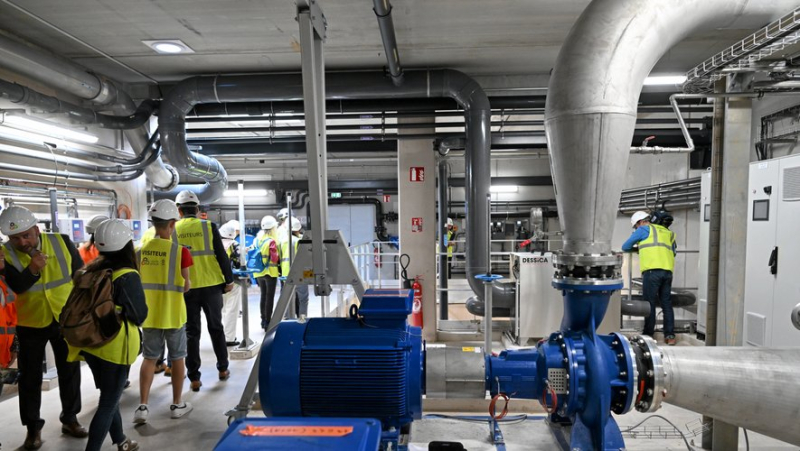A new factory to secure the supply of drinking water in Montpellier

L’eau fait l’objet d’un triple filtrage avant d’être traitée et chlorée. Midi Libre – JEAN-MICHEL MART
L’usine Valédeau, située derrière le domaine de Verchant au sud de la ville, permettra de suppléer la station d’Arago en cas de besoin ou d’urgence. Un investissement indispensable pour la Régie de l’Eau.
The difficulties encountered in Aude and the Pyrénées-Orientales show how access to drinking water is now a major issue. If Montpellier has an essential and valuable resource with the source of the Lez, the metropolis did not have, until now, a fallback solution, in the event of pollution or simply increased pressure on the main network.
24 M€ invested
The inauguration, this Thursday, of the Valédeau water purification plant, south of the city, behind the Verchant estate constitutes, in this context, a major step in security of the water supply to Montpellier homes. "We only had a few hours of reserves, we had to secure it. Above all, this allows us to predict the future. Our horizon is that of our grandchildren" launched the president of the Water Authority René Revol. "It’is a strategic construction site. You need a backup plant to deal with a crisis. We must not postpone the necessary work, for water, transport" resumed Michaël Delafosse.
L’Valédeau factory, an investment of 24 M€ (including 1.80 million euros from the Water Agency), is not yet operational but should be during the summer when the pressure is the strongest. "We received the first results of the samples from the Regional Health Agency. They are good" underlines a Suez agent who contributed to the establishment of processes for treating water drawn from the Bas-Rhône canal, managed by BRL, at Méjanelle.
A reserve of 28 000 m3
Three successive filterings are carried out to make the resource drinkable according to health standards which should become more stringent. A first stage allows organic and suspended matter to be evacuated, the second aims to retain micropollutants and pesticides using carbon, and the third finally is filtering on a bed of sand. The water is then disinfected by ultraviolet filtering before benefiting from a chlorination operation.
A drop in consumption in 2023
The two old basins of 14,000 m3 each will be used to store the resource which must also be used to supply the municipalities of Jacou, Le Crès and Vendargues. The new factory has a processing capacity of 2,700m3 per hour and, according to the management, it will be able to secure 80% of the peak needs provided by the company. ;Arago factory located next to the Lunaret zoo. "Valédeau will also allow us to occasionally stop Arago for its maintenance and modernization" adds Grégory Vallée, its director.
In parallel with this security of supply, the Metropolis ensures that its efforts carried out on the underground networks have made it possible to increase the yield to a rate of 86% compared to 79%; % few years ago. René Revol also observes that calls for sobriety, associated with the new pricing policy, resulted in a drop in consumption of 3.3% in 2023 in the fourteen municipalities connected to the public sector.< /p> I subscribe to read more




